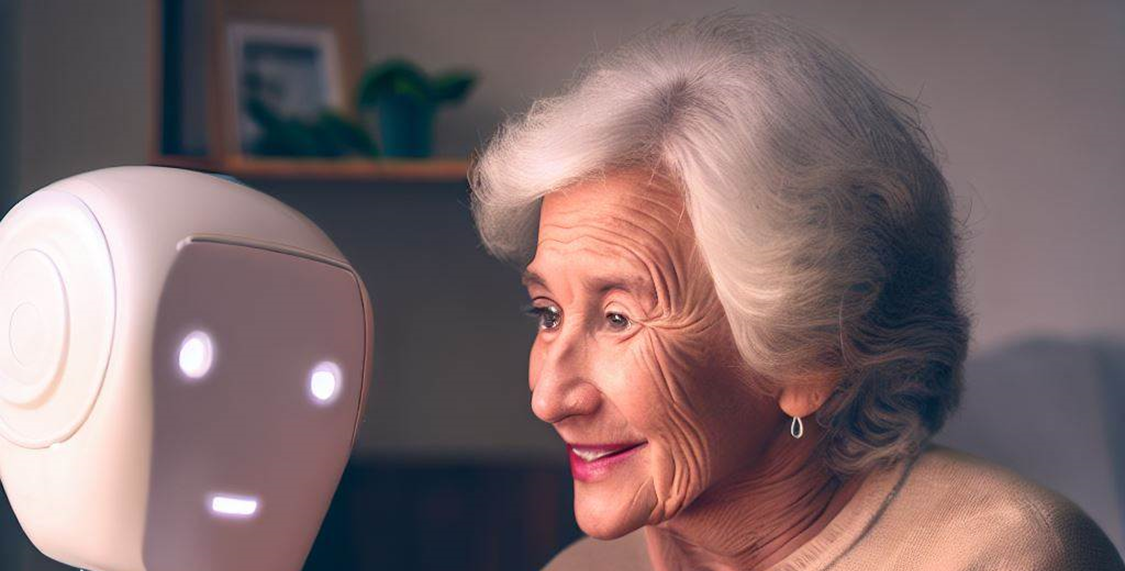AI in Elderly Healthcare: The Promise and The Bias
The potential impact of AI technologies on elderly healthcare is very promising. AI technologies have demonstrated great potential in satisfying the unmet care needs of older adults and are expected to further develop in this area. However, as we delve deeper into this technological revolution, it's crucial to address the biases and challenges that come with it.
AI, a major driver of technological development in the 21st century, has unfortunately been associated with a new form of bias - "Digital Ageism". This bias is embedded into technology and AI systems, often excluding older adults from both the development and use of technology, leading to a “physical–digital divide”. This divide exists when a group feels ostracized because they are unable to engage with the technologies being used around them.
Stereotypes and misconceptions about older adults being a homogenous group in decline, incompetent, and in need of younger people’s guidance when it comes to technology, contribute to this bias. These paternalistic stereotypes and patronizing sentiments contribute to harmful compassionate ageism, which is then reinforced and internalized by older adults.
There is an urgency and opportunity to better understand and address digital ageism. The AI developed to date may be insufficient to meet the needs of older adults and may prove to be exclusionary and discriminatory. However, there is also an opportunity to develop programs and mechanisms that include older adults and to delineate what is fair and ethical with regard to AI.
AI devices utilized in elderly healthcare include robots, exoskeleton devices, intelligent homes, AI-enabled health smart applications and wearables, voice-activated devices, and virtual reality. These technologies play various roles in geriatric medicine, such as rehabilitation therapists, emotional supporters, social facilitators, supervisors, and cognitive promoters. AI is also useful in predicting adverse drug events, a common cause of preventable harm in healthcare, particularly dangerous for the elderly.
Robots designed to assist seniors in their daily lives hold great promise for the future. However, the technology, particularly the AI that could make these robots truly useful, is still in its nascent stages. Studies indicate that social robot interactions could improve engagement, interaction, and stress indicators, as well as reduce loneliness and the use of medications for older adults. Yet, the sustainable deployment of robots in care practice needs to align with the needs and interests of both caregivers and care recipients.
Studies indicated that social robot interactions could improve engagement, interaction, and stress indicators, as well as reduce loneliness and the use of medications for older adults. Pet robot intervention may be suitable as a treatment option for BPSD in people with dementia. Photo-Integrated Conversation Moderated by Robots (PICMOR) significantly improved verbal fluency significantly improved in community-living older adults. A team from Australia observed that some elderly residents built an emotional bond with their robot companions such that it was difficult to withdraw robots from residents who were strongly attached to them.
While AI technologies have the potential to revolutionize elderly healthcare, it's essential to address the biases and challenges that come with it. As we move forward, we need to develop AI technologies that are inclusive, fair, and ethical, ensuring that they truly meet the needs of older adults. The future of elderly healthcare lies in the balance between technological advancement and the preservation of human dignity and respect.
REFERENCES
Ma B, Yang J, Wong FK, Wong AK, Ma T, Meng J, Zhao Y, Wang Y, Lu Q. Artificial Intelligence in Elderly Healthcare: A Scoping Review. Ageing Research Reviews. 2022 Nov 23:101808.
Otake-Matsuura M, Tokunaga S, Watanabe K, Abe MS, Sekiguchi T, Sugimoto H, Kishimoto T, Kudo T. Cognitive intervention through Photo-Integrated Conversation Moderated by Robots (PICMOR) program: a randomized controlled trial. Frontiers in Robotics and AI. 2021 Apr 12;8:633076.
Leng M, Liu P, Zhang P, Hu M, Zhou H, Li G, Yin H, Chen L. Pet robot intervention for people with dementia: A systematic review and meta-analysis of randomized controlled trials. Psychiatry Research. 2019 Jan 1;271:516-25.
Chu CH, Nyrup R, Leslie K, Shi J, Bianchi A, Lyn A, McNicholl M, Khan S, Rahimi S, Grenier A. Digital ageism: Challenges and opportunities in artificial intelligence for older adults. The Gerontologist. 2022 Sep;62(7):947-55.
Yuan S, Coghlan S, Lederman R, Waycott J. Social Robots in Aged Care: Care Staff Experiences and Perspectives on Robot Benefits and Challenges. Proceedings of the ACM on Human-Computer Interaction. 2022 Nov 11;6(CSCW2):1-23.




Comments
Post a Comment